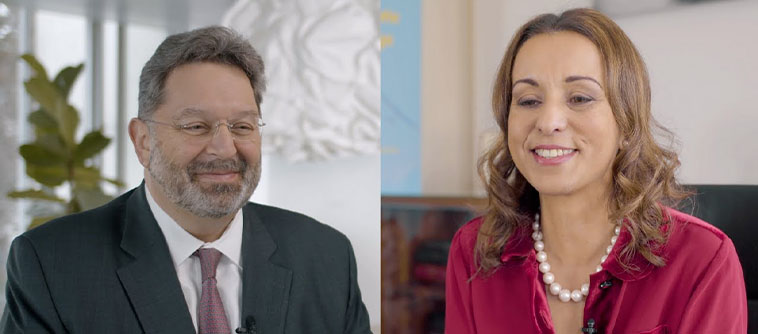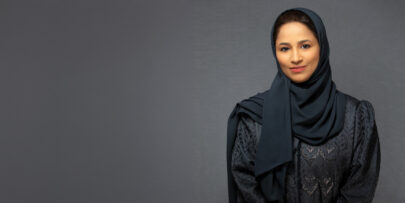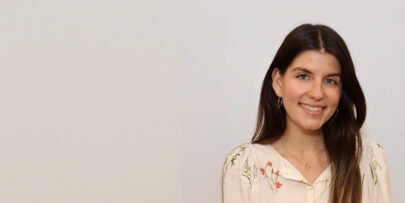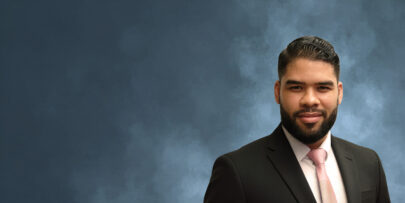“We are the last generation that still has the luxury to choose” to respond to climate change, said Ilham Kadri, chief executive of Belgian chemicals multinational Solvay.
She issued this stark warning at IMD’s annual flagship CEO Roundtable. Kadri said that time was running out to reverse course and keep global warming below catastrophic levels, in a subsequent interview with Jean-François Manzoni, the President of IMD, as part of his CEO Interview Series.
Coronavirus “has been a wakeup call”, Kadri said, in that the pandemic is forcing the world to take collective action to protect each other’s health — mirroring what is required to combat climate change.
Recently named as one of Fortune Magazine’s most powerful women in business, Kadri has made sustainability part of her mandate since taking the helm at Solvay in March 2019, just as financial markets plunged.
Kadri, 51, is a French-Moroccan businesswoman who led through past crises, including 9/11 terrorist attacks on the US and the 2008 global financial crash. But coronavirus created unique challenges. “I joke often that back in March, I was not chief executive officer; I was chief mask officer,” she said, about the then global shortage of personal protective equipment, or PPE.
If the first response to the crisis was protecting employee welfare, the second was protecting the balance sheet. “Cash is king, right?” she said, adding that she had to shore up supply chains to maintain product and service delivery as border closures caused bottlenecks.
Aside from convincing the company that remote or hybrid work is the new normal, as it raised productivity, coronavirus also underscored Solvay’s purpose — to create sustainable shared value for all through the power of science.
For example, the company has supplied critical products, such as hand sanitizer, face shields and other protective equipment, to those in need. Moreover, it created a sustainability program, Solvay One Planet, which set ambitious objectives to solve key environmental and societal challenges through science and innovation.
The program has three pillars tackling climate change, resource scarcity and promoting a better life. For example, Solvay will double the rate at which it reduces greenhouse gas emissions, and is aiming for a 26% reduction, which would be in line with the 2015 Paris Agreement to keep global warming “well below 2°C”.
Kadri noted that Solvay is not paying lip service to sustainability: “This is very close to our hearts and embedded in all our business strategies. It’s not a corporate concept paper.”
She said the company does well by doing good. “We believe that to be profitable you have to be sustainable,” she said, noting that the company’s overall financial performance has been sustained or even improved in recent years.
Kadri highlighted a new product called Actizone, which kills 99.9% of bacteria on a range of surfaces, continuously, for 24 hours. “It’s cannibalizing some of the existing technology we have, but it has a higher margin,” she said.
Alongside sustainability, Kadri is also passionate about creating a more inclusive and diverse workplace – not just in Solvay but in wider society. In particular, she hopes to inspire more women to pursue a career in the STEM fields, where they have historically been underrepresented. At Solvay, she has committed to achieving gender parity in mid-and-senior-level management by 2035.
Diversity and inclusion are not just a moral imperative; she argued they make good business sense too: “Companies with diverse management teams have almost 20% higher revenues through innovation and [are] 20% more likely to experience above average profitability.”
She added that leaders need to empower everyone to bring their whole selves to work because that’s “precisely what makes you an asset for any company”.
Kadri strives to be an authentic leader herself, and to show vulnerability (“I’m not such a digital native”), which she views as a strength rather than a weakness. “IQ is a commodity. We need more EQ, we need more empathy,” she said, noting that leaders have to make tough choices in times of turmoil.
That can weigh on the toughest of bosses, and the pandemic has been a war of attrition for Kadri. “It has been a stress test,” she said. “My recipe was very simple: healthy routines, including good nutrition. Being confined [in lockdown], it was hard to do sports, but I love yoga.”
She also took regular breaks from work and said executive coaching has been transformational over the years, developing her mindfulness.
It is perhaps unsurprising, then, that she has a positive outlook for the future. Quoting Winston Churchill, the British wartime leader, she urged companies to “never let a good crisis go to waste”.
“The companies who have not wasted this crisis are going to emerge stronger and be a winner tomorrow [by] rethinking the operating and business model,” she added.



